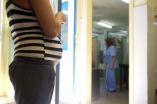(Press-News.org) Training older people in the use of social media improves cognitive capacity, increases a sense of self-competence and could have a beneficial overall impact on mental health and well-being, according to a landmark study carried out in the UK.
A two-year project funded by the European Union and led by the University of Exeter in partnership with Somerset Care Ltd and Torbay & Southern Devon Health and Care NHS Trust gave a group of vulnerable older adults a specially-designed computer, broadband connection and training in how to use them.
Those who received training became more positive about computers over time, with the participants particularly enjoying connecting with friends and relatives via Skype and email.
The ageing population is one of the major challenges facing our society. It is expected that between 2010 and 2060, the number of people aged 65 and over across Europe will grow from 17.4% to 29.5% of the total population. The project, called Ages 2.0, aimed to assess the extent to which the internet and social media offer a tool for promoting active ageing and addressing the social isolation that is too often a feature of older age.
It found that those trained had heightened feelings of self-competence, engaged more in social activity, had a stronger sense of personal identity and showed improved cognitive capacity. These factors indirectly led to overall better mental health and well-being.
Dr Thomas Morton of the University of Exeter, who led the project in the UK said: "Human beings are social animals, and it's no surprise that we tend to do better when we have the capacity to connect with others. But what can be surprising is just how important social connections are to cognitive and physical health. People who are socially isolated or who experience loneliness are more vulnerable to disease and decline. For these reasons finding ways to support people's social connections is a really important goal. This study shows how technology can be a useful tool for enabling social connections, and that supporting older people in our community to use technology effectively can have important benefits for their health and well-being."
Participants in the study were all vulnerable older adults between the ages of 60 and 95 years of age who were receiving support from Somerset Care Ltd. The 76 volunteers were drawn both from those receiving care in the community and those living in any of the not-for-profit organisation's 31 residential care homes.
Half of the participants were randomly assigned to receive training and the other half to a control group who received care as usual. The training involved the installation of an 'Easy PC package' consisting of a touch screen computer and keyboard, and a broadband internet connection. They were able to keep the computer for 12 months, including a three-month training period.
One of the study's participants, Margaret Keohone, said: "Having this training changes people's lives and opens up their worlds, invigorates their minds and for lots of us gives us a completely different way of recognising our worth as we age. I was just slipping away into a slower way of life."
Emma Green, the Care Technologist from Somerset Care who delivered training to Margaret and others in the study, said: "As the training programme developed with my participants their confidence grew and they were keen to tell me how family members had emailed back, Skyped or 'liked' a comment or a picture on Facebook. Seeing the smiles on my participant's faces when they Skyped a family member in the UK or abroad was such a special moment.
"One of the best Skype calls was during a visit to my caravan in Cornwall when I Skyped a client who used to enjoy camping. We were around the camp fire and he was able to be a part of our group from the laptop, looking at the fire and joining in. They all know that I am only an email or Skype call away and it has been fabulous being a part of the Ages 2.0 project."
Those behind the Ages 2.0 study hope its findings will help inform future policy on digital inclusion and the delivery of tele-health and tele-care strategies.
Torbay and Southern Devon Health and Care NHS Trust (TSDHCT) was selected to participate in Ages 2.0 due to its forwarding-thinking and innovative way of working. TSDHCT pioneered the integrated approach to providing health and social care. In order to provide the best care possible for local people, particularly the area's high population of older residents, the trust developed health and social services which worked far more closely together and were able to respond to the whole care needs of an individual, rather than operating in isolation.
The project team sought the trust's views on how the project could work in practice in the community.
Mandy Seymour, Chief Executive at Torbay and Southern Devon Health and Care NHS Trust, said: "As a nationally acclaimed pioneer, Torbay has a long history of innovation and of the successful integration of health and social care. The Trust firmly believes that by bringing services together, and through participation in innovative projects, the needs of individuals who require care and support are better met.
"We're always keen to build upon and ensure continuity of our integration success and Ages 2.0 has provided the perfect research mechanism to help promote discussions around future models of care.
"The challenges of supporting an aging population in the community are well documented - we encourage active aging with our local population by giving people opportunities to be independent and to enable them to be living well at home for longer.
"The positive results of the project are interesting and the healthcare community will look at how this could help to influence strategies for supporting the increasing number of vulnerable and ageing people in local communities."
INFORMATION:
The researchers were interested in comparing results across different cultural contexts; therefore a parallel study took place in Italy. For more information visit: http://www.ages2.eu/en
WOODS HOLE, Mass.--Since the first "catalog" of the normal bacterial makeup of the human body was published in 2012, numerous connections between illness and disturbances in the human microbiota have been found. This week, scientists report yet another: Cancerous tumors in the ascending colon (the part nearest to the small intestine) are characterized by biofilms, which are dense clumps of bacterial cells encased in a self-produced matrix.
"This is the first time that biofilms have been shown to be associated with colon cancer, to our knowledge," says co-author Jessica ...
PITTSBURGH--An interest in the gender gap between the representations of female candidates in U.S. elections compared to their male counterparts led two University of Pittsburgh professors to take the issue into the laboratory for three years of research.
Associate Professors of Political Science Kristin Kanthak and Jonathan Woon have published an article about the first phase of their research findings. "Women Don't Run? Election Aversion and Candidate Entry" was published online Dec. 2 in the American Journal of Political Science.
"Past research has shown that women ...
A group of researchers from Recep Tayyip Erdoğan University, Faculty of Fisheries in Turkey discovered a new trout species. The newly described species Salmo kottelati, belongs to the Salmonidae family, which includes salmons, trouts, chars, graylings and freshwater whitefishes.
Salmonids include over 200 species, which have a high economic value because of their taste and famed sporting qualities.
The genus Salmo is widely distributed in rivers and streams of basins of the Marmara, Black, Aegean and Mediterranean seas. The genus is represented by 12 species in ...
In a contribution to an extraordinary international scientific collaboration the University of Sydney found that genomic 'fossils' of past viral infections are up to thirteen times less common in birds than mammals.
"We found that only found only five viral families have left a footprint in the bird genome (genetic material) during evolution. Our study therefore suggests that birds are either less susceptible to viral invasions or purge them more effectively than mammals," said Professor Edward Holmes, from the University of Sydney's Charles Perkins Centre, School of ...
A new study analyses the violent behaviours exhibited towards pregnant women. While 21% of women suffer emotional violence during pregnancy, 3.6% encounter physical or sexual violence. Furthermore, 36.1% of those who reported physical violence claimed that it happened "very often" or "daily".
Whilst for many women pregnancy is a happy time, for almost one in four it turns out not to be so enjoyable. An investigation into the prevalence of domestic violence against pregnant women has found that 22.7% endure some kind of violence - emotional, physical or sexual - within ...
For the first time researchers have measured large distances in the Universe using data, rather than calculations related to general relativity.
A research team from Imperial College London and the University of Barcelona has used data from astronomical surveys to measure a standard distance that is central to our understanding of the expansion of the universe.
Previously the size of this 'standard ruler' has only been predicted from theoretical models that rely on general relativity to explain gravity at large scales. The new study is the first to measure it using ...
About 95 percent of the more than 10,000 bird species known only evolved upon the extinction of dinosaurs about 66 million years ago. According to computer analyses of the genetic data, today's diversity developed from a few species at a virtually explosive rate after 15 million years already. KIT scientists designed the algorithms for the comprehensive analysis of the evolution of birds. To obtain the results that are now presented in the Science journal, a computing capacity of 300 processor-years was required. (DOI 10.1126/science.1253451)
"Computation of these trees ...
This news release is available in Spanish. What is more, this study is the first one conducted using forensic samples taken from deceased individuals. So they examined all the sudden deaths that underwent forensic analysis and which took place in Bizkaia over a seven-year period, between January 2003 and December 2009. The post-mortem examinations were conducted by the only service existing in the province: the Forensic Pathology Service of Bizkaia of the Basque Institute of Forensic Medicine. The research has been published by the specialised journal Addiction, the ...
A study involving scientists from the University of Leicester has established a link between hypoglycaemia and increased risk of cardiovascular events and mortality in patients with diabetes.
Professors Kamlesh Khunti and Melanie Davies, scientists from the University of Leicester's Diabetes Research Centre, have confirmed an association between hypoglycaemia and an increased risk of cardiovascular events and mortality in insulin-treated patients with diabetes, which could lead to changes in the way some patients' treatment is managed. The results were published online ...
Communication protocols for digital devices are very efficient but also very brittle: They require information to be specified in a precise order with a precise number of bits. If sender and receiver -- say, a computer and a printer -- are off by even a single bit relative to each other, communication between them breaks down entirely.
Humans are much more flexible. Two strangers may come to a conversation with wildly differing vocabularies and frames of reference, but they will quickly assess the extent of their mutual understanding and tailor their speech accordingly.
Madhu ...




